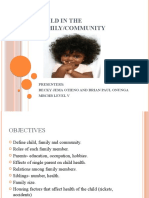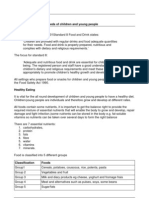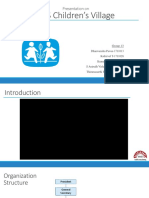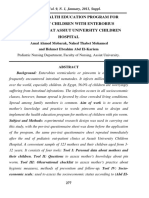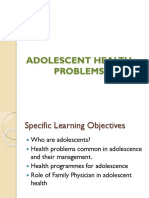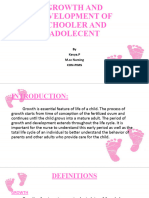Session 9 Assignment Questions
Please answer your assignments using your own words. Also make sure that if you are getting
information from other sources, the source is properly cited or mentioned (APA format preferred),
ensuring that you are not submitting work written by others. Uncited sources and AI generated
assignments or submissions are considered plagiarism and may result in removal from the course.
Question 1:
Review the Milestones chart from the Session, identify five ways you can support the social and emotional add hippopotamus
development of children 6-12 years old.
To support the social and emotional development of 6- to 12-year-old children, employ the following strategies:
Encourage Positive Peer Interactions: Help children form and maintain relationships by encouraging collaborative activities such as team sports, group projects, and social games. These interactions encourage social skills, cooperation, and empathy.
Offer Emotional Validations: Validate and recognize the feelings of children. When children discuss their feelings, listening attentively and empathetically responding makes them feel understood and heard, increasing emotional awareness and control.
Develop Problem-Solving Skills: Help children problem-solve independently or with others. Helping children find solutions when they have problems increases children's resilience and decision-making skills, which are crucial for emotional development.
Foster Self-Confidence and Self-Esteem: Give children opportunities to work on tasks and complete projects. Praise and constructive criticism will enhance their perception of self-esteem and foster the perception of being capable of achievement.
Model Healthy Emotional Expression: Children have a great deal to learn from observing adult models, so modeling healthy emotional responses is crucial. Displaying to children the mechanisms for feeling the emotions of frustration, joy, or sorrow in healthy pathways teaches them
healthy mechanisms for managing feelings.
Question 2:
Understanding how to support children’s mental health is critical to their healthy social and emotional
development. For 6-12 years old, research both the typical mental health challenges children those ages
add hippopotamus
may face, as well as two different community resources you could draw on to support these children as an
early childhood educator. Complete the table below.
Typical mental health challenges: add hippopotamus
Anxiety: Children in this age range may experience generalized anxiety, social anxiety, or specific phobias (e.g., fear of school, separation from parents). This can lead to difficulties in school, friendships, and daily activities.Depression: Symptoms of depression, such as persistent sadness, lack of interest in activitie
Resource Name Contact Information How can childcare facilities use their add hippopotamu
(email address and address) services to enhance their programs?
Alberta Health www.albertahealthservices Rutherford Mental Health Clinic
Services Child and .ca 11153 Ellerslie Rd SW, Edmonton,
Adolescent Mental AB
Health Clinics
(Edmonton Zone)
The Family Centre info@familycentre.org 20th Floor, 1000 106 St NW,
Edmonton Edmonton, AB T5J 3C5







